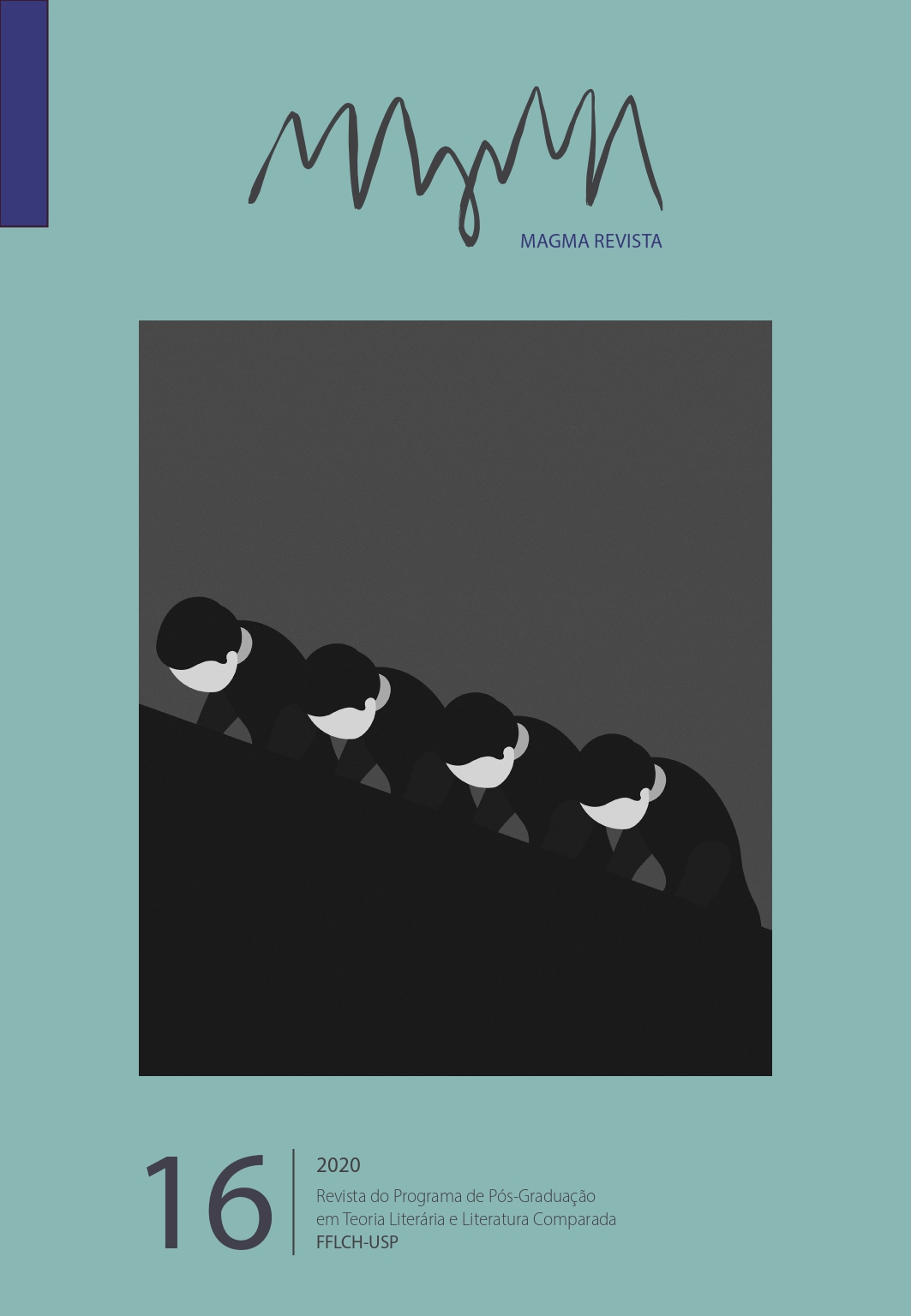Barravento, entre tese e forma
DOI:
https://doi.org/10.11606/issn.2448-1769.mag.2020.189712Keywords:
Barravento, Glauber Rocha, brazilian cinema, candomblé, University of BahiaAbstract
Barravento (1962) is the first feature film by Glauber Rocha, one of the key directors of the Brazilian Cinema Novo. A trip to the community of fishermen, Xaréu, on the coast of Bahia, and the sudden awareness of the local poverty, with all the setbacks in the production of the film, were decisive for an awakening of an acute critical perspective in its author. The signature ambiguity of the film is born on the one hand by a radical and revolutionary political vision, according to which the mystical worldview of Yoruba religion was alienating, and on the other hand of the anthropological contemplation of a local experience. This tension reflects much of the spirit of modernity and vanguard that took over the Soteropolitan social environment with the creation of the University of Bahia, during the formative years of the filmmaker. The tension goes on in the following years in the intellectual consciousness of Glauber and finds an expressive synthesis in the manifesto-thesis “Eztetyka of the Hunger”, of 1965.
Downloads
References
LIVROS:
Escorel, Eduardo. “Cinema: Arte profana – Glauber Rocha antes de Deus e o Diabo”. In: Novos Estudos Cebrap, n. 39, jul. 1994, p. 209-221.
Gatti, José. Barravento: a estreia de Glauber. Florianópolis: Ed. da UFSC, 1987.
Jameson, Frederic. “Periodizando os anos 1960” (trad. César Brites e Maria Luiza Borges). In: Pós-modernismo e política (org. Heloísa Buarque de Hollanda). Rio de Janeiro: Rocco, 1992. p. 81-126.
Rebechi Junior, Arlindo. Glauber Rocha, ensaísta do Brasil. f. 291-302. Dissertação (Doutorado em Literatura Brasileira) – Faculdade de Filosofia, Letras e Ciências Humanas, Universidade de São Paulo, São Paulo, 2011.
Risério, Antonio. Avant-garde na Bahia. São Paulo: Instituto Lina Bo e P.M. Bardi, 1995.
Risério, Antonio. Caymmi: uma utopia de lugar. São Paulo: Perspectiva, 1993. (Debates; v.253)
Rocha, Glauber. Cartas ao mundo (org. Ivana Bentes) – São Paulo: Companhia das Letras, 1997.
Rocha, Glauber. Revisão crítica do cinema brasileiro. São Paulo: Cosac & Naify, 2003.
Rocha, Glauber. Revolução do Cinema Novo. São Paulo, Cosac & Naify, 2004.
Rosenfeld, Anatol. Brecht e o Teatro Épico (org. Nanci Fernandes). São Paulo: Perspectiva, 2012.
Xavier, Ismail. Sertão Mar: Glauber Rocha e a estética da fome. São Paulo: Cosac Naify, 2007.
PERIÓDICO:
Rocha, Glauber. “Barravento no cinema brasileiro” [Entrevista a Walter Lima Júnior]. Correio da Manhã. Rio de Janeiro (RJ), 2° Caderno, p. 1, 17 abril 1962.
FILME:
BARRAVENTO, Direção: Glauber Rocha. Brasil: Iglu Filmes, 1961. 2 DVD (80 min.), p&b.
Downloads
Published
Issue
Section
License
Copyright (c) 2020 Cleiton Oliveira Silva

This work is licensed under a Creative Commons Attribution-NonCommercial-NoDerivatives 4.0 International License.
Autores que publicam nesta revista concordam com os seguintes termos:
- Autores mantém os direitos autorais e concedem à revista o direito de primeira publicação, com o trabalho simultaneamente licenciado sob a Licença Creative Commons Attribution CC-BY-NC-ND que permite o compartilhamento do trabalho com reconhecimento da autoria e publicação inicial nesta revista.
- Autores têm autorização para assumir contratos adicionais separadamente, para distribuição não-exclusiva da versão do trabalho publicada nesta revista (ex.: publicar em repositório institucional ou como capítulo de livro), com reconhecimento de autoria e publicação inicial nesta revista.
- Autores têm permissão e são estimulados a publicar e distribuir seu trabalho online (ex.: em repositórios institucionais ou na sua página pessoal) a qualquer ponto antes ou durante o processo editorial, já que isso pode gerar alterações produtivas, bem como aumentar o impacto e a citação do trabalho publicado (Veja O Efeito do Acesso Livre).



